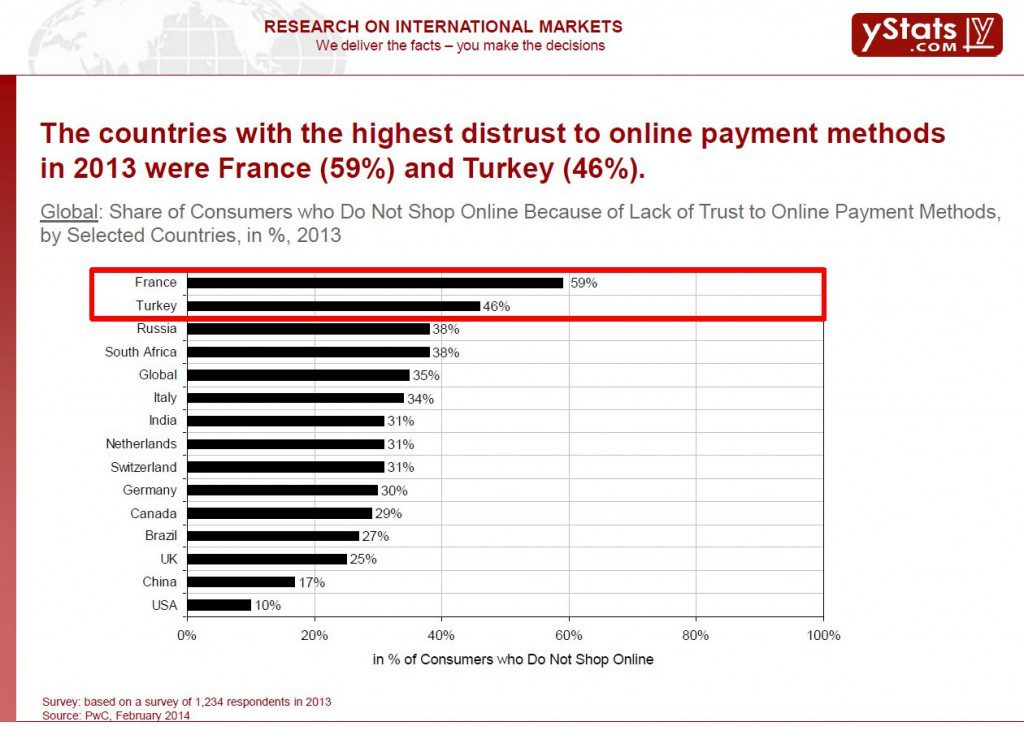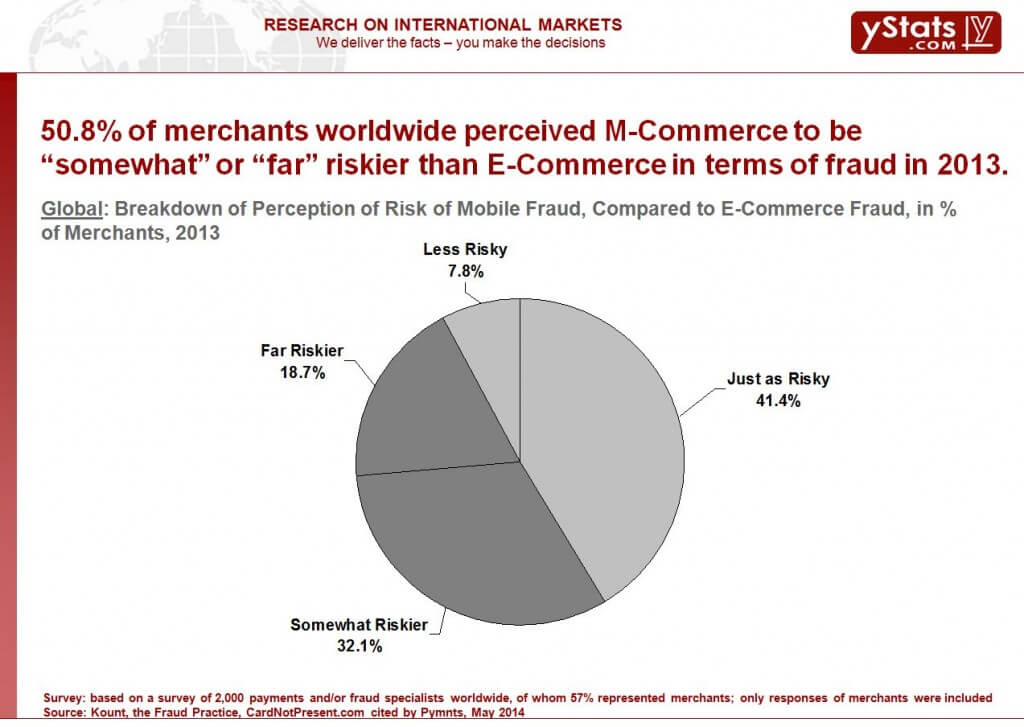Hamburg-based business intelligence organization yStats.com has released a report on the effects of fraud on B2C E-Commerce and online payments. The report, “Fraud in Global B2C E-Commerce and Online Payment 2014” shows that as online retail revenue is increasing at double digit growth rates globally, and is expected to total nearly 2 trillion Euros in the next four years, fraud is also increasing. The potential for fraud causes many prospective shoppers to stay away from online sales, and is forcing merchants to establish fraud prevention measures.
The growth of B2C E-Commerce is affected by fraud, as surveys show that more than a third of consumers worldwide who do not yet shop online state that their fear for personal data breach or lack of trust to online payments is the reason. One of yStats.com research analysts Tatiana Teplova points out that „distrust is especially high in European countries, while consumers in the USA and China have more confidence in the online purchase process“. Generally, consumers trust offline payments more than online, and online payments more than mobile. E-Money payments are highlighted as the most trusted online payment method among consumer groups of all ages, while young adults under 35 have the highest trust rates toward the safety of online and mobile payments.
One of the major trends in E-Commerce security is that fraud is expanding beyond payments into account takeovers, which are responsible for an increasing share of total E-Commerce fraud. Multi-channel and pure online merchants such as Home Depot, Neiman Marcus, Target and eBay were occasional targets of account takeover crimes in 2014.
Another major trend is that fraud follows the consumer movement from shopping on computers to the use of mobile devices. The security concerns of merchants and consumers present a challenge to faster adoption and growth of M-Commerce and mobile payments. Over a third of consumers worldwide do not shop or pay with mobile devices because of security concerns, while over half of merchants consider mobile commerce to be riskier than general E-Commerce. It is widely acknowledged that M-Commerce requires tailored fraud prevention tools, such as ID authentication, secure mobile payment methods and device ID.
Cross-border B2C E-Commerce remains the most frequent focus for E-Commerce fraud. Knowledge of fraud profiles of different countries is an important part of the cross-border marketing strategy, as some nations have a much higher likelihood of fraud than the worldwide average.
Fraud in E-Commerce has spawned the growth of the prevention and detection industry. Fraud solution providers with worldwide reach include companies based primarily in the USA and Europe, including subsidiaries of card companies such as Acertify of American Express, CyberSource of Visa and DataCash of MasterCard. A wave of acquisitions ran through the online fraud prevention industry this year, as large payments and online security providers aimed at expanding their E-Commerce fraud prevention portfolios. Payment service and fraud management provider Ogone was acquired by payments company Ingenico Group, while fraud prevention and risk management company Retail Decisions was acquired by banking and payments solution provider ACI Worldwide. Meanwhile, security and fraud solution companies such as TeleSign and TreatMetrix raised multi-million dollar investments in 2014.




